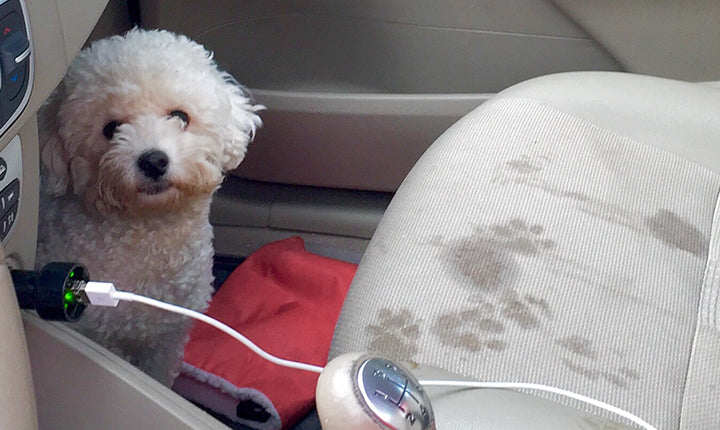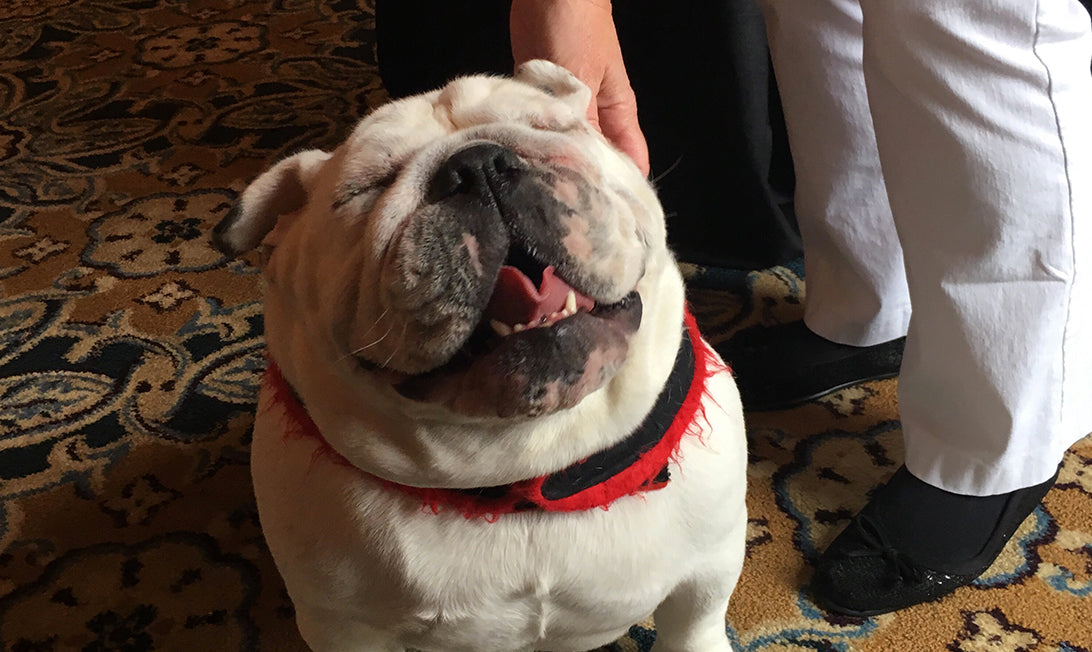
Having a pet can be rewarding, fun, and like having a best friend. But specific responsibilities come with pet ownership that needs to be taken seriously.
If you have a pet (especially an indoor pet), you must disinfect areas that your pet touches to help protect yourself, your family, and your visitors from unwanted and dangerous bacteria and viruses.
We’ve rounded up all you need to know about sanitizing around your pets.
Pets are Cute, but They Bring in Bugs!
Much like us, animals carry germs with them. Some of the germs like bacteria and viruses that pets have can get us sick. Because of this, it’s essential to keep an eye on where your pets spend most of their day so that you can clean up after them and remove any bacteria or viruses from your home.
Here are common animals and their different viruses and bacteria.
Dogs and Cats
Campylobacter Jejuni - This bacteria can be spread by dogs and cats and some other animals, like birds and farm animals. Campylobacter jejuni is commonly spread through fecal matter, leading to diarrhea, abdominal pain, and fever (1).
Ringworm - Ringworm is a pretty common condition caught by cats and dogs. Ringworm is a skin infection caused by fungi, and it can lead to unsightly swollen, scaly skin (2).
Toxoplasmosis - This parasite is interesting because it doesn’t result in symptoms for everyone, but for those who do get them, they can be severe. Toxoplasmosis can lead to fever, pain, tiredness, and a rash. More seriously, it can also cause a significant impact pregnancy and result in miscarriage and infant illness (3).
Reptiles and Amphibians
Salmonella - We need to be careful with handling reptiles and amphibians because their feces contain Salmonella. These bacteria can lead to gastrointestinal symptoms like fever, diarrhea, and vomiting (4). Kids tend to be more susceptible to this bacteria because they tend to handle these animals, especially if they live in an enclosure in their bedrooms. This is important to keep in mind because children are also more vulnerable to severe symptoms from Salmonella infection, like sepsis, dehydration, or even meningitis.
Birds
Psittacosis - This hard to pronounce bacteria typically occurs when feces build up in a birdcage. Also known as parrot fever, this bacteria can give you a strong fever, headache, and cough (5).
Hamsters and Mice
Lymphocytic choriomeningitis virus - Those cute little fluff balls in their cage could result in you catching this serious virus if areas where their feces, urine, or saliva aren’t properly disinfected. Those infected with this virus can develop symptoms including vomiting, fever, and aches. Serious cases can even lead to the development of the potentially fatal conditions meningitis and encephalitis (6).
Fish
Mycobacterium marinum - This bacteria can occur in aquariums or similar structures like fish pools. The symptoms of infection are an inflamed rash that can spread across the body. This infection is relatively mild but could be more serious in people with compromised immune systems (7).
As we can see from these examples, while pets are cute, they can come with some significant health risks. The good news is that when they are appropriately managed, and their areas are thoroughly cleaned, you can do a lot to lower this risk.
How to Safely Disinfect Around Your Pets
Pet ownership is fun and fulfilling, and with some simple rules in place, it can also be safe. To keep you and your loved ones safe from bacteria and viruses that your pets might track into your house, we’ve come up with some simple disinfecting tips.
- Regularly disinfect your pet’s sleeping, eating, and toilet areas. This includes washing beds, changing litter, etc.
- Don’t allow feces or urine to stay in a litter box for long; most bacteria and viruses are transported via excrements.
- If you have a bird, be sure to wear a mask when cleaning its waste.
- Wash your hands thoroughly after touching your pet.
- Try not to let your pet touch any food preparation or bathroom surface.
- Bathe your pet outdoors, i.e., not in the bathroom; this includes washing aquariums.
- Don’t kiss your pet; bacteria and viruses can spread through saliva too.
What Disinfectants are Safe to Use Around Your Pet?
When looking for a disinfectant, you want one that will kill all microbial life, such as bacteria, viruses, fungi, etc. However, too strong a cleaner and you risk giving yourself a headache or possibly damaging your furniture or house.
We recommend using SteriCide ® (32 oz or 1 gallon).

SteriCide ® delivers everything you need to keep your house free of unwanted intruders; it acts as a disinfectant, fungicide, and cleaner and will kill all forms of microbial life. And as a bonus, it also deodorizes, so there will be no funky smells from your pet’s corner of the living room anymore.
Take Extra Care Around Vulnerable People
It’s essential to make sure you disinfect your pet’s areas properly if you live with or are visited by people who are more vulnerable to illness or infection.
If someone has a compromised immune system, it means that if they get an infection, their body is less prepared to fight off that infection, and so their symptoms can be far more severe than another person.
So get cleaning to help keep you safe from illness and anyone with a compromised immune system safe from something potentially scarier.
The Bottom Line
Whatever pet you have, it’s important to keep their regular haunts clean and as microbial-free as possible. Bacteria and viruses are often spread from animals to humans through their feces, urine, or saliva, so a little care in the management and cleanliness of these areas can go a long way toward stopping spread before it begins.
An effective disinfectant that kills all microbial life is advised to keep you and your loved ones safe from unwanted infection.



